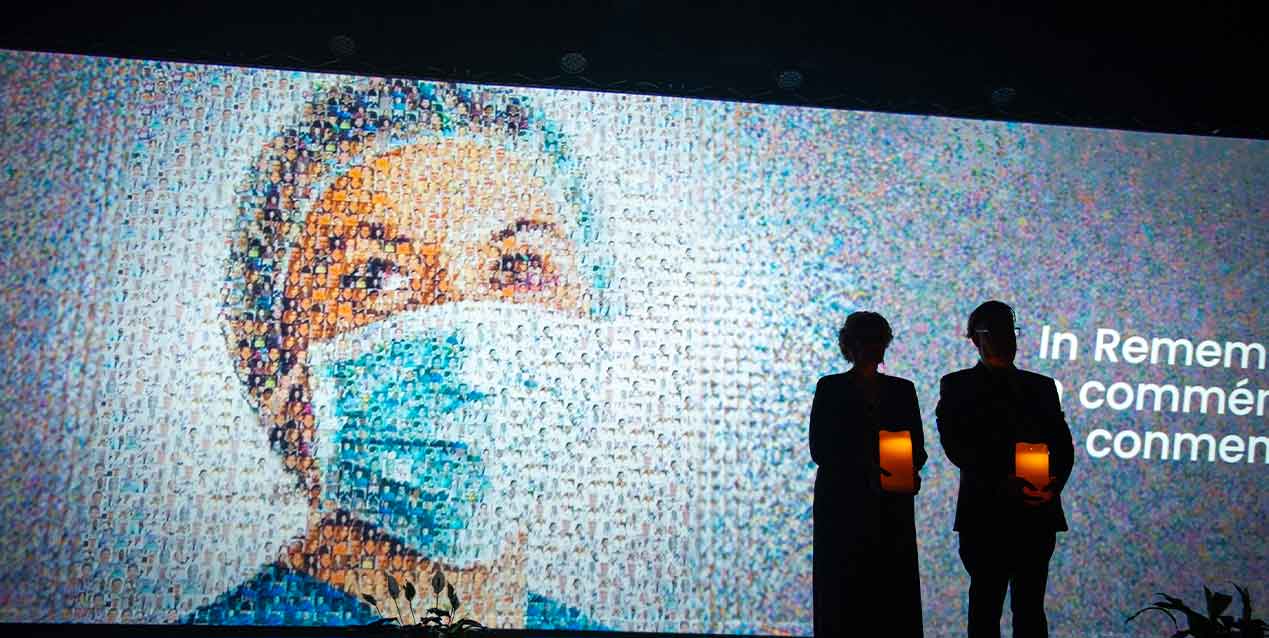On a global stage, nurses stood together in a moment of solidarity for their colleagues around the world living in terrible conditions of war, conflict and disaster, at the recent International Council of Nurses (ICN) Congress.
Following video messages played from nurses in areas of conflict, the 7,000+ nurses from 130 countries attending the ICN 2025 Congress in Helsinki stood together united for peace.
In the last plenary session, ICN Chief Executive Officer Howard Catton re-emphasised the importance of partnerships and collaboration to help support nurses in conflict zones and natural and human-made disasters.
“As nurses, we are health makers, but we’re also peacemakers, because when we bring health, we bring healing, we bring compassion, we bring hope, we bring cohesion, we bring people together. We have to eliminate divisions and differences as well.
‘We’re not able to do the fantastic work that ICRC and MSF, for example, do, but we can connect nurses, and we can connect nursing associations. And we can provide a way in which the word solidarity comes to life.”
While the ICN had supported humanitarian work and assistance in response to disasters and conflicts around the world for many years, this role had increased of recent times, Mr Catton said.
“In more recent years, following the invasion of the Ukraine and the start of that war, we saw an enormous outpouring from nursing associations around the world who wanted to demonstrate their support, their solidarity – nurse to nurse, nursing association to nursing association. And that’s why ICN established the #NursesforPeace initiative. This has enabled us to really support nurses in the way that we wanted to.”
The ICN’s #NursesforPeace initiative is aligned with the World Health Organization (WHO) Global Health and Peace Initiative.
“Peace is not just the absence of conflict: it is the presence of opportunity, equity, dignity and help for all people. And I just want to highlight two words – equity and dignity. The nursing profession epitomises this: nurses provide equitable care, day in, day out, and you provide it, with dignity,” said Mr Catton.
Mr Catton recognised nursing leaders around the world who had stood up in response to the conflicts being witnessed around the world.
“I just want to call that out and appreciate what you do, and for all the nursing leaders out there, because it is important to have strong leaders.”
Ukraine’s Chief Nursing Officer Kateryna Balabanova spoke about her country’s plight to ICN Congress.
“Russia attacked Ukraine and we have been at war for three years: three years, three months and nine days. All our territory now is under attack. Our country is big, and even if you live 1,300 kilometres from the frontline, you are not in safety, because each night you are under attack.”
Despite these conditions, Ukraine had continued to build its nursing policy, she said.
“In 2024, a three-year strategy for nurse development was approved by the Minister of Health of Ukraine. And it was built on WHO’s pillars of education, jobs, services and leadership.
“Leadership is one of our key national priorities – not just words, but action. Because during war, our nurses continue to work under a bomb attack in each hospital. They continue to come to their workplace each day, despite what happens during the night, because they take care of the patient, they take care of wounded soldiers, and the care system in our country is built on nurses.”
The next step for Ukraine’s nurses was to create a strong union of nurses, midwives and medical workers with a strong system and a roadmap, Ms Balabanova said.
For more information on the ICN #NursesforPeace campaign, visit here
For more on the ICN 2025 Congress including a recap and gallery images, view here
The ANMJ is proud to be a media partner for the 2025 ICN Congress









